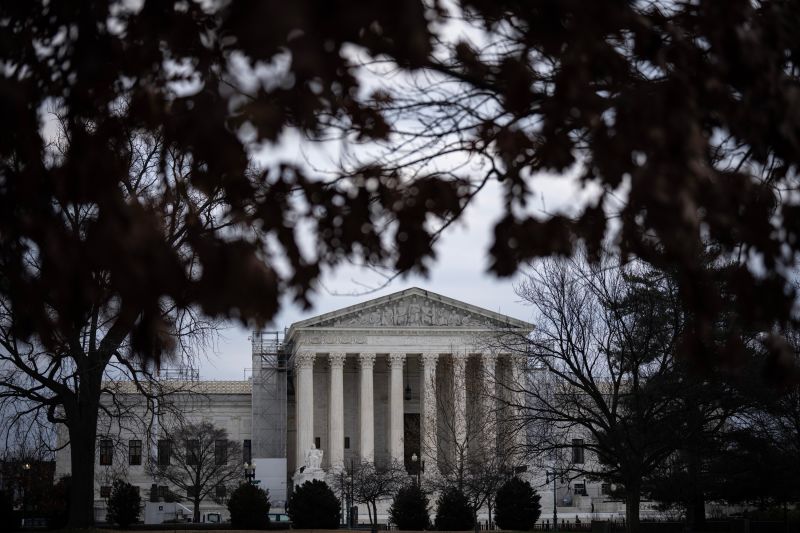
Oregon Supreme Court Poised to Decide Trump's Ballot Eligibility Amid 14th Amendment Debate

The Oregon Supreme Court will rule on Donald Trump's eligibility for the 2024 ballot, considering the 14th Amendment's 'insurrectionist ban' This pivotal decision holds the power to shape the future of Trump's political career
The Oregon Supreme Court is set to make a decision on whether to eliminate Donald Trump from the 2024 ballots in the state due to the "insurrectionist ban" in the 14th Amendment. The liberal advocacy group, Free Speech For People, initiated a lawsuit in Oregon last month on behalf of a group of voters. They directly petitioned the state's highest court and requested that Trump be removed from the ballot for allegedly inciting the January 6 insurrection.
The Oregon justices are expected to make a ruling soon, now that all the necessary filings have been completed. This marks the most recent significant obstacle to Trump's candidacy, following a series of conflicting outcomes in various states and an ongoing appeal to the US Supreme Court.
Trump has been removed from the ballot by Colorado's Supreme Court and Maine's secretary of state, citing the post-Civil War provision against insurrectionists holding office. Appeals are currently underway. However, Trump has succeeded in several states, such as Michigan and Minnesota, where similar lawsuits were dismissed by the top courts on procedural grounds.
On the morning of January 4, 2024, the U.S. Supreme Court in Washington, DC, was the subject of former President Donald Trump's petition to maintain his name on the primary ballot in Colorado. This comes after the Colorado Supreme Court's ruling in December, which cited the 14th amendment's insurrection clause as grounds for Trump's ineligibility to appear on the state's ballot.
Here are the challenges the Supreme Court is confronting as they consider Trump's eligibility.
The 14th Amendment, ratified post-Civil War, states that US officials who vow to uphold the Constitution are barred from holding future office if they have "engaged in insurrection" or have "given aid or comfort" to insurrectionists. Yet, the Constitution does not detail the enforcement of this ban, and it has seen little action since the late 1800s, leaving legal uncertainties about its application to the presidency.
The Oregon justices requested additional arguments from the parties last week regarding the standing of the challengers in filing the lawsuit, as well as the involvement of the secretary of state in assessing candidate qualifications for a presidential primary. In a filing on Tuesday night, the challengers asserted that granting their petition would safeguard their liberty interest in participating in a lawfully-conducted election, free from the potential confusion of ineligible candidates on the ballot. They argued that they have the standing to bring the lawsuit.
Previous Oregon Supreme Court decisions support their argument, including a recent 2022 ruling that upheld the Secretary of State's authority to remove ineligible candidates from the primary ballot. Oregon Secretary of State LaVonne Griffin-Valade had initially asked the court to dismiss the case on procedural grounds, maintaining that the law requiring her to assess a candidate's eligibility only applies to the general election, not the GOP primary.
Trump's legal team argues that the suing voters lack standing, and they agree with Griffin-Valade's stance that she cannot assess his primary qualifications. Griffin-Valade, a Democrat, has asserted in court documents that the Republican primary ballot must be completed by March 21, with the Oregon primary taking place on May 21.
On the other hand, the potential impact of removing Trump from the primary ballot may be minimal. Oregon's GOP contest is one of the last, so the nomination race may already be decided by then. Additionally, Oregon's delegates to the Republican convention will be determined by the results of the separate state party convention on May 25.
All seven justices on the Oregon Supreme Court were selected by Democratic governors. After their appointment, justices are mandated to eventually compete in a statewide race against any potential challengers. Four of the seven justices have already won elections to remain on the bench, while the remaining three have yet to face voters.














